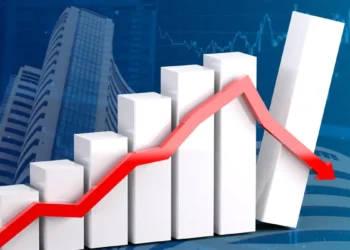In a major shift in global trade policy, U.S. President Donald Trump has imposed steep tariffs on imports from Canada, Mexico, and China, citing concerns over illegal immigration and drug trafficking. While Nigeria is not directly affected by these measures, its trade relationship with the U.S. remains a crucial aspect of its economic strategy.
Trump’s Tariff Decision and Global Reactions
Effective February 4, 2025, the U.S. will implement a 25% tariff on all goods from Canada and Mexico and a 10% tariff on Canadian oil and Chinese imports. This move has triggered strong responses, with Canada imposing reciprocal 25% tariffs on U.S. goods worth C$155 billion. Mexico and China have also hinted at similar countermeasures, potentially impacting industries such as electronics and textiles.
Nigeria’s Trade Position with the U.S.
Despite not being directly impacted, Nigeria remains one of 48 countries with a trade deficit against the U.S.. However, recent trade data indicates that Nigeria holds a trade surplus with the U.S., exporting more than it imports.
- In 2024, Nigeria exported $5.29 billion worth of goods to the U.S. while importing $3.88 billion, leading to a $1.4 billion trade surplus.
- In 2023, total trade between the two nations was $8.27 billion, with Nigeria maintaining a $3.1 billion trade surplus.
- However, over the past decade, trade volumes have dropped by 73%, largely due to the U.S. reducing its crude oil imports from Nigeria.
- In 2011, trade between both countries stood at $74 billion, with Nigeria enjoying a $14 billion surplus.
- From 2005 to 2014, trade between the two nations totaled $281.7 billion, with Nigeria maintaining a massive $200.2 billion trade surplus.
While trade volumes have declined, the U.S. remains a critical trade partner for Nigeria, particularly in oil, agriculture, manufacturing, and entertainment. U.S. foreign direct investment (FDI) in Nigeria is largely concentrated in petroleum, mining, and wholesale trade.
Strategic Economic Adjustments for Nigeria
Nigeria continues to benefit from preferential trade agreements, such as the African Growth and Opportunity Act (AGOA), which allows duty-free access to U.S. markets for eligible African exports. However, analysts suggest that Nigeria should adopt a “Nigeria-First” approach to re-evaluate its trade strategy.
Economic experts believe that restoring pre-2020 trade levels with the U.S. could significantly strengthen foreign exchange inflows, bolster the naira, and drive job creation.
In response to Trump’s economic policies, Nigeria’s Minister of Industry, Trade, and Investment, Mrs. Jumoke Oduwole, assured that Nigeria is not alarmed by the U.S. tariff measures. Meanwhile, Sunday Dare, Special Adviser to President Tinubu, emphasized the need for Nigeria to prioritize its national interests amid shifting global trade dynamics.
Looking Ahead
As the U.S. reshapes its trade policies, Nigeria must adapt by diversifying its exports, strengthening local industries, and negotiating better trade terms. The evolving situation presents both challenges and opportunities that could redefine Nigeria’s economic engagement with global markets.









